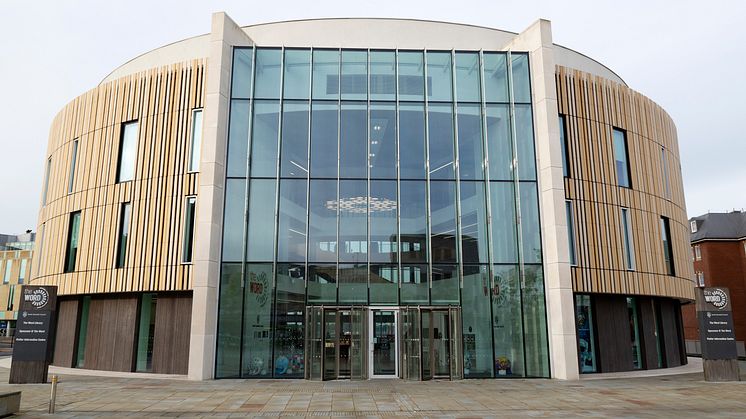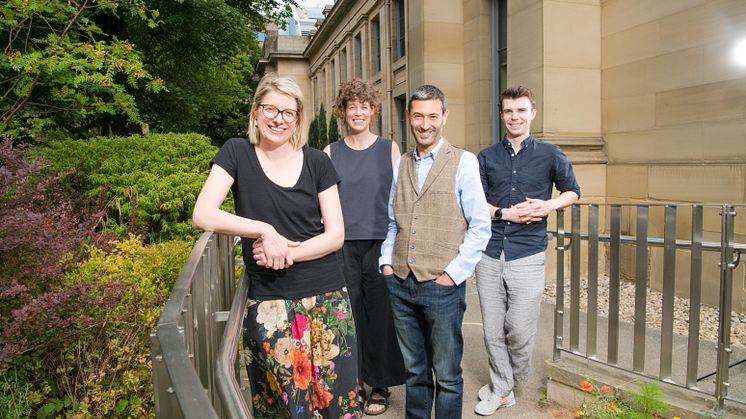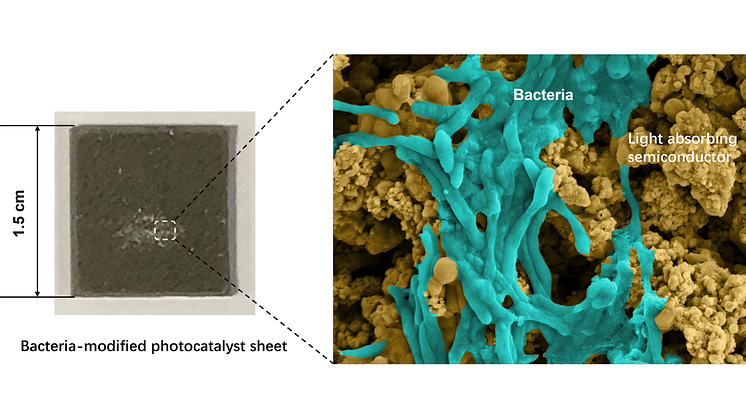
Press release -
Researchers awarded funding to highlight community involvement in sustainable practices
Northumbria University academics have won a British Academy grant to conduct research that highlights the importance of communities in helping to shape a more sustainable future.
Dr Lee Barron is leading an interdisciplinary group of academics who are working with state-of-the-art cultural venue in South Shields – The Word, National Centre for the Written Word – to explore behaviours and attitudes of the public towards climate change, net-zero and other issues around sustainability.
The academics, which include Professor Sheng-feng Qin and Dr Jiayi Jin, are using The Word to host a series of interviews, public talks, focus groups and creative workshops with members of the public. The outcomes from the research, which will include key quotes that capture people’s thoughts and a community-centred net zero grassroots action plan, will be put on display at an exhibition at The Word.
The ultimate aim of the project is to use public opinion to inform and influence policy as the country moves towards the establishment of a net zero future.
Dr Barron said: “Sustainability is clearly a huge issue for all of us. We’re trying to highlight the importance of community involvement in policymaking, which is far more preferable than higher authorities imposing decisions upon communities without their involvement. We also want to emphasise how cultural spaces can be used as points of contact to foster collaboration between authorities and local communities.
“We’re going to promote this approach to carbon reduction managers and policymakers. We want these people to understand the need to collaborate with the public in cultural spaces, such as museums and libraries, so they can make policies that reflect the views of the public. Hopefully this approach can eventually be rolled out in other parts of the UK.
“The research also opens up debate on other critical issues. How can we use technology to improve human interaction within cultural spaces, for example? Do we need additional mechanisms to feed back public opinion to authorities such as local councils and central government?
“It has been fantastic to work on this project with The Word, which is an excellent cultural focal point for the North East community.”
Councillor Joan Atkinson, Deputy Leader of South Tyneside Council, with responsibility for culture, leisure and the visitor economy, said: “We are delighted to be working with Dr Barron on this important research. As a council, we are committed to taking action against climate change. In July 2019 we declared a climate emergency, pledging to take all necessary steps to become carbon neutral by 2030.
“We must all work together if we are to achieve this common goal of mitigating the effects of climate change and protecting our environment.
“The Word is a fantastic cultural venue for engaging with local communities and exploring the issue and we look forward to seeing the outcome of the research going on display in future.”
Entitled Developing a Grassroots Sustainable Futures Platform: Collective Participation in a Community-Based Cultural Organisation, the research was showcased recently at a roundtable event as part of the British Academy’s Shared Understandings of a Sustainable Future programme. The programme aims to explore society’s role in the transition to net zero and how this journey can support the wider goal of environmental sustainability.
Henry Richards, Senior Futures Lead at the British Academy, said: “We are delighted to be funding this work through our policy research programme, Shared Understandings of a Sustainable Future. Dr Barron’s research will contribute to greater understanding of the role of people in the transition to net zero, supporting better policymaking around the complex challenge of reaching environmental sustainability.”
Members of the project team presented a paper based on the project at the Development Studies Association conference, Just Sustainable Futures in an Urbanising and Mobile World, at University College London earlier this month.
The research also feeds into Northumbria University’s world-leading work on sustainability. This work includes assessing the impact of melting ice sheets, exploring the development of sustainable buildings, looking at the past to see how climates have adapted, and understanding the environmental impacts of daily habits such as clothes shopping.
Northumbria was rated “first class” for sustainability in the latest People & Planet University League table. Discover more information on the University website about what Northumbria is doing to help society live more sustainably.
Topics
Categories
Northumbria is a research-intensive modern university with a global reputation for academic excellence. Find out more about us at www.northumbria.ac.uk --- Please contact our Media and Communications team at media.communications@northumbria.ac.uk with any media enquiries or interview requests ---










